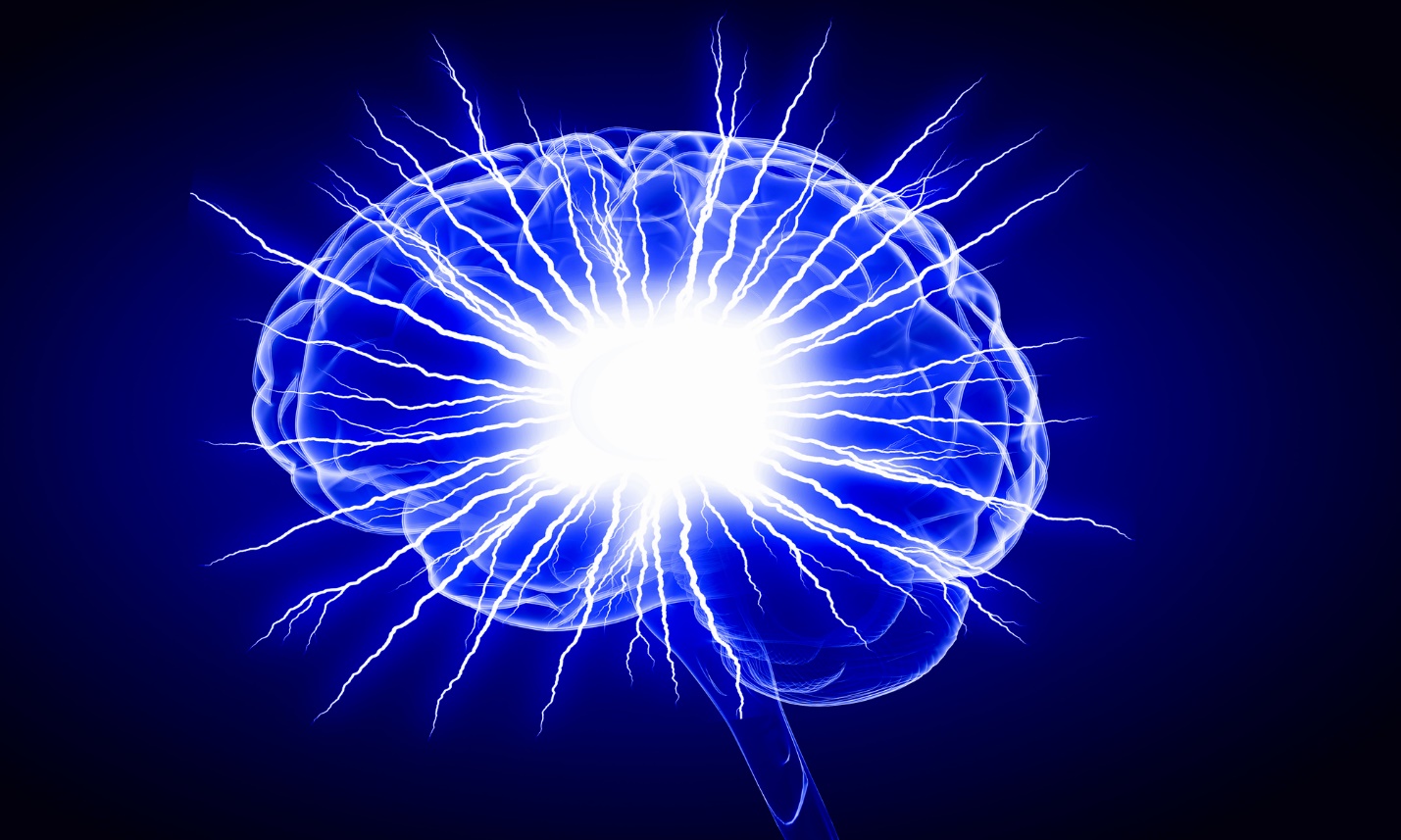BP44
Because there is a law such as gravity, the universe can and will create itself from nothing. Spontaneous creation is the reason there is something rather than nothing, why the universe exists, why we exist. It is not necessary to invoke God to light the blue touch paper and set the universe going ~ Stephen Hawking and Leonard Mlodinow

What are we to do when a scientist makes a claim like this? The author of the blog, Cold and Lonely Truth, responds by saying, “For the universe to create itself, it would first have to exist. But that would mean the universe would have to exist and not exist at the same time in the same respect, which breaks the law of noncontradiction – a strict rule of logic . . . Using the features of nature to explain what was before nature is, to be as charitable as possible, simply wrongheaded.”
Hawking went on to claim that philosophy is dead, and that science is now our only source of truth about reality. Of course, he exhibited hypocrisy when he wrote a book that employed logic and philosophy to argue his position.
Hawking’s commitment to scientism was ultimately hurtful to science, ironically, since scientism has been proven to be demonstrably unsupportable.
As the Cold and Lonely Truth blog says, Unfortunately, those who unwittingly sink into the quicksand of scientism do not seem to understand their descent into nonsense . . . It is striking and quite revealing that people would opt for logically fallacious incoherent hogwash that creates more questions than it answers rather than the one hypothesis—God—that is logically coherent, has . . . explanatory power . . . explanatory scope, and is metaphysically satisfactory.
What Hawking and others (many of whom are atheists and agnostics) are demonstrating is that all humans have psychological and spiritual motives that drive their beliefs, that give birth to their beliefs. Hawking’s presupposition is that there is no God, and to this pre-belief he is shackled.
One would have to read more of Hawking’s writings to determine if his views about God are driven by science or if he is primarily motivated by something emotional, namely, a loathing for the existence of a personal God who imposes moral values and authority over him.
So, what does any of this have to do with today’s post that plans to do a quick flyover of neuroscience and the study of the brain and the mind?
There are some in this world who claim that the brain is all there is. Since God does not exist (see Hawking above) in their minds (brains), they believe that the human body and brain along with everything else in the universe are products of natural selection—blind mutations and accidents that occurred over billions of years.

I could spend time presenting arguments here about the existence of God, but I have come to believe that if someone has already made up their minds, more evidence will probably not make it past their presuppositional filter. After all, belief or nonbelief in the divine Being is ultimately a spiritual issue even though as believers we want to know and present as much evidence as possible to convince others of the truth.
I have possibly stated it in a previous blogpost, but I will say it again. Someone once said that all thoughts are thinkable, but not all thoughts are livable. Also, all arguments are conceivable, but not all arguments are rational as demonstrated above with Hawking’s claim that the universe created itself.
If we do not agree with a reality claim, we all must be careful not to emotionally contrive arguments to oppose it simply because it doesn’t fit into our worldview.
We must follow the evidence wherever it leads if we are going to be honest observers of reality.
When Hawking says that the universe created itself, it is nonsense. How do you argue with nonsense? If people begin with the preconception that God does not exist, then no one will be able to convince them otherwise unless their heart becomes inclined toward God.
If a person embraces an unyielding belief that we live in a closed space-time continuum where the supernatural does not exist, then one must necessarily believe that there is no divine being. Since God is not an option, an adherent of this worldview must find an argument to support that preconception even if the argument is irrational, unlivable and—nonsensical.
Relative to neuroscience, if one believes that there is no God, then the evolved brain is all there is. The mind must somehow have been created by the brain and be an extension of the physical. Additionally, consciousness cannot be viewed as a spiritual entity. It must flow from the physical brain since outside the parameters of materialism nothing can exist. The presupposition will not allow it.

Since I do find credibility in Paley’s watchmaker analogy argument—the cosmos shows clear signs of design—what follows below are some musings about the brain, the mind, and the human being in general from the perspective that we live in an open space-time continuum created by Jesus.
Why do our brains experience mental illness? Mental illnesses are a consequence of the Fall that broke humanity spiritually, physically, relationally, and psychologically.
One consequence of the Tragic Rebellion against God in the Garden is that we are predisposed to defy authority which results in chaos and a high level of stressful chaos in our outside world. In addition, our selfishness leads us to use others (as per Freud) and so we corrupt love. Our pride leads us to be self-sufficient creatures who do not need God. All these are ongoing expressions of sin and produce mental illness.
Because of our fallen natures, all of us are warped in some direction when it comes to the existence of need within us. We might become dependent creatures who refuse to grow, and we enlist someone else to take care of us the rest of our lives. Even adult parents communicate to their children that they should be responsible to take care of them.
We might become independent creatures who perceive all need as neediness and neediness as weakness and them we falsely worship strength and extinguish all our needs—even the need for God.
Related to need is the critical psychological journey of attachment. We struggle to attach to those around us because at its core, attachment requires trust and transparency. Having been marred by sin, we are born into this world not knowing how to do either.
Further, our default position is that we do not know how to love. We naturally love people for what they can do for us, not for who they are. We do not know how to self-comfort. We turn to addictions instead of relational comfort. Alcohol, drugs, sex, and entertainment arouses or depresses us. Emotional intimacy is too dangerous—someone might see who we are on the inside–and largely unknown to us.
We are creatures of contracts who will only give back to others if they have done right by us—if they have been fair to us. By nature, we are not people who live out a covenantal love that says I will give back better to you even if you have not given me what I deserve.
Without Jesus in our lives, we remain totally fallen. Living in the dark. We are fish swimming in the murky waters of the swamp and do not even know that we could live on land if we only believed in Him. He would give us lungs, new eyes, new senses of smell—a whole quiverful of spiritual senses if we called on Him.
Jesus promises to give us the ability to walk by faith and not by sight.

Believers in Jesus are those amphibians C.S. Lewis referred to that live both in water and on land. Better yet, instead of seeing ourselves as toads that exist in the water and on land, we can understand that Jesus makes us into new creatures like swans that live on the water but also have been enabled to fly far above both water and land.
So where does psychology fit into this whole discussion, into what is true about the physical brain and the nonphysical mind?
What is the goal of therapy relative to the human mind?
Further, how do we view psychological therapy in light of last week’s blogpost, viz., living life from the long view–from the perspective that this world is not our forever home?
Does a Christian psychologist aim to help others feel good or help them not to feel bad? What if their pain and dysfunction come from sin or from choosing to remain in the swamp and apart from God? Are there times where people need a human they can implicitly trust before they can even conceive of moving toward God?
Can’t God just heal a person’s lack of trust spiritually? Miraculously? God can do whatever He wants, right? But are there times when a psychological therapist is needed? If you have appendicitis, do you always assume that God will miraculously heal your appendix (or your torn ACL or your high blood pressure or your cancer) or do you go to a surgeon to remove it? Is God able to deliver miracles even through medicine and psychology?
Since we live in this world (even though we are not of the world), we often rely on general revelation as opposed to special revelation to heal us. Be comfortable with that because wherever truth is found in this world and whatever domain it is embedded in, God is the author of that truth.
If anything is true, it is from God. When we study the stars, the atom, the cell, the brain, mathematics, agriculture, structural engineering, we are not creating truth. We are discovering divine truth built into the universe. Thankfully, he has made that truth discoverable for us.
Let’s briefly look at the issue of anxiety.

Discoveries in neuroscience have peeled back the skull in recent decades and now we increasingly see the amazing complexity and functioning of the brain–maybe especially the amygdala and the cortex–related to anxiety.
In a similar way, biochemistry pulled back the curtain on the human cell that Darwin thought was merely a blob of protoplasm. The little black box that Darwin could not open in his day has now been ripped open like a five-year-old opening a present at Christmas and we have found ourselves even more amazed than the child who discovers a puppy that licks his face and will be his best friend until he goes to college.
New scientific advances have revealed in both the cell and in the brain the existence of order, design, complexity, and language (a sure sign of intelligent design as much as some attempt to disparage that conclusion with whatever reasons they can muster).
Neuroscience has opened a window to top-down processing and bottom-up processing, and the major role of the thalamus, the cortex, and the amygdala and how all these play a role in the occurrence of anxiety. All these discoveries also assist us in our treatment of anxiety in the brain and the mind.
Some researchers in the field of neuroscience theorize that the mind flows out of the brain–as being created by the brain, one could say (maybe reminiscent of Hawking’s statement that the universe created itself). As believers in Jesus, we see the mind as flowing out of the soul—the innate being God created within us that is the driver of our material vehicle known as the body. Yes, the brain certainly impacts our spiritual selves since there does exist a bi-directional reciprocity, but the self is typically the driver of the brain at least when it comes to conscious, rational intention.
Before my mind operating through the hardware of my brain swerves off into oblivion, where am I going with these thoughts?
I have said before that as a Christian who happens to be a psychologist as opposed to a psychologist who happens to be a Christian, I see all my clients and, indeed, all people, through God’s eyes, not merely through material eyes.
2 Corinthians 5:16,17 says that as new creations we no longer see things the way we used to when we were those fish swimming around in the swamp without God. God’s saving grace now permits us to experience the world through a whole new set of senses—spiritual, eternal ones. It is through these senses that I attempt to view my clients.
Which means what, exactly? I will answer that question by repeating an earlier question.

What is the goal of therapy for a believing psychologist? Is it to relieve pain, reduce symptomatology, move people away from anxiety, depression? Is it to identify and dismantle coping skills and defenses that isolate people, to use CBT to heighten awareness of stinking thinking as Albert Ellis called it, to grow the resilience of the ego, to deliver from suicidal ideation?
Absolutely! All these objectives are priceless to the human heart and represent the love of Christ in action. But is there more to healing the human body and soul than these interventions? That is the critical question.
Is our motivation to help individuals live with fewer and less enslaving symptoms of mental illness for the next fifty years and then die? Is that the ultimate goal of our therapy? Or is the healing of distress and dysfunction and disability an objective that serves a greater good?
Said another way, do you think that Lazarus in John 11 was more excited about being raised from the grave so he could live another three decades on this planet or about Jesus promising him that He was the resurrection and the life and that whoever believes in Him would never die? No doubt, Lazarus was overjoyed to be raised to life in this world, but I would wager that he valued the promise of eternal life even more.
DTFL believes that all psychological therapy provided by followers of Jesus must be conducted from the eternal perspective. This world is but a breath—a blink of an eye. Nonetheless, just like Jesus modeled for us, it is essential that we love others and meet them in their current distress.
But with that, give them the best gift of all—bringing the eternal love of God into the room through conversation, or prayer, or with some clients, simply by intentionally communicating the love of Jesus through listening, presence, and compassion.
Stephen Hawking embraced the presupposition that men and women are accidents of evolution. Since he was an atheist, that was his only option. Unlike Hawking, I believe that people are eternal beings created by God for a personal relationship with Him. Accordingly, my primary goal as a psychologist is to listen to a person’s whole being—not just to his brain but also to his mind (soul). Neuroscience exists to help me understand the brain component of the holistic human while God’s word provides insight into the spiritual aspect.
Always, the bedrock beneath the study of the brain and the mind is my belief that humans are here to glorify Jesus and become like Him through salvation and subsequent growth. Growth toward Christlikeness is one of a few preeminent goals we value as believers. Any therapy that does not have that goal in mind at some level is no different than secular therapy.

The divine purpose for every human must be delivered to clients since they are, after all, made in His image. His wisdom and love will meet them in their deepest distress and heal them most efficiently.
Again, I want to clarify what I’m not saying, namely, that helping individuals heal psychological dysfunction or lower their distress is a bad thing. Not at all. These are good things. Often, many of us need to remove obstacles like anxiety before we can draw closer to Jesus and others or even our own selves.
The point I’m making is that the believing psychologist has a goal even more important than removing distress and dysfunction because she or he view a person through God’s eternal eyes.
What is this overriding objective, this primary directive?
It is critical to look at the roots of mental illness. Why is there anxiety? Why is there depression? Why are there deep control issues and perfection in eating disorders?
My primary goal as a psychologist is to listen for what separates people from others and prevents them from experiencing Presence. Anxiety often has its roots in the aloneness that comes with hiding. Swallowed emotions might also trigger anxiety.
In an earlier post, we discussed how there are three primary ways to respond to interactions with others in this world. You can move against others (symbolized by the Volcano), move away from others (Leakage) or move toward others (the Well). The Well is obviously the healthiest way to move toward others since it entails bringing one’s true self up from its hiding place and out into the world where it can be known.
Leakage occurs when we hide our emotions and needs and true selves and then all these things begin to leak out in our underground selves in the form of anxiety, depression, bi-polar issues, personality disorders and even addictions and psychoses.
Leakage teaches us that it is critical not simply to lessen the manifest symptoms of mental illness (unless we are committed solely to temporal symptom relief) but to find the tap root of the symptoms and follow it down five miles deep into the subterranean soul.
Most often, mental illness is a symptom. It is not the end game. What is the mental illness communicating? That is what we must ask. What is the mental illness SOS attempting to say? Often, the illness is testifying to the divine truth that we are not designed for separation and aloneness.
If we are exiling ourselves from others because a condemning voice inside accuses us of being shameful and unlovable, or if we are hiding in the darkness because of sinful things we have done in word, deed or in our imagination and we do not want to come into the Light because we love our sin or we fear God’s reaction to our sin, then we will experience symptoms of Leakage—mental illness.
Human beings were not designed to hide or to be alone.
The symptoms that accompany mental illness, then, are sign posts that point to something that lurks beneath the crust of our behaviors and cognitions. In John 3:16ff, we see that Jesus came to love people out of the isolation of condemnation and to call them out of the darkness of sin instead of simply making them feel better.
So, instead of just alleviating my client’s symptoms (for example, helping a client to not be anxious about death by teaching her to put her anxiety in an imaginary box and focusing on other things), it is essential to look deeper. Far deeper.
You might even be doing your client a disservice by simply removing their symptoms with CBT or meds. Often the most difficult symptoms are not caused by the brain but by the mind and the soul attempting to speak through the brain about critical concerns beyond the physical world.

Of course, materialists never view the soul as a source of pathology since the supernatural does not exist. Pathology can only be rooted in the physical brain. Just as Darwinists in biology must view DNA not as a language suggesting intelligent design, so neuroscientists who do not believe in God must explain things from a naturalistic viewpoint where everything is due to the functioning of the brain.
One moral of this story is: never settle for a naturalistic perspective where everything is about the brain. The material brain is part of the picture, of course, and the brain is fallen and so has physical abnormalities that will impact the soul. Yes, it is critical to absorb and apply everything we are learning about the brain from neuroscientific discoveries.
However, above all, remember that the brain does not run the show. The brain is the material dwelling place of your spirit, your soul, the eternal person. The house is God’s temple in which your soul lives.
The physical temple does not own your spirit unless you permit it to own you. You are the master of the house. Always be sure to hear what your spiritual mind is communicating from a nonmaterial level.
So, what are some things to take away from today’s post?
Understand worldviews when you go see a psychologist. Does your therapist happen to be a follower of Jesus or is he or she a follower of Jesus who happens to be a psychologist? There is a difference between the two.
Herein lies the reason why I usually encourage a believer not to open their souls to an unbelieving psychologist. There is a world of a difference—a universe, an eternity of a difference—between a person who sees the world through the eyes of God and the one who sees the world through human eyes only. Mortal eyes or immortal eyes. Which would you choose? The mind of man or the mind of Christ (1 Corinthians 2).
But I also recommend that you see a counselor who might read the Bible and pray with you but also is trained in psychology. Yes, for sure special revelation is ultimately superior because it conveys salvation truth—it helps us with eternal decisions. But general revelation has been given to us by God as well. So, see a therapist who has studied the truth of God found in psychology.
Often, we need to access the general revelation of psychology to understand what is interfering with our relationships with God, others, and our own selves. Psychology, like the Proverbs, can be a source of great wisdom. Remember the Well, Leakage and the Volcano?
The more I have studied psychology and spent time with people who have taken me into the holy of holies of their hearts, I have become increasingly convinced that we are all designed for relationship. Nothing matters more. I would rather be mentally ill and know Jesus than be mentally healthy and not know Jesus.
Mental illness is often the suffering that drives us toward God. The old born-on-third-base- versus-born-in-the-batter’s-box-and-reach-first-base-by-being-hit-by-a-pitch deal. Disability, dysfunction, distress—these often cause us to cry out to God instead of relying on our self-sufficiency. I can attest to that.
Yes, in my own experience, God uses mental illness to speak to us. As C.S. Lewis said, suffering can be the megaphone God uses to get our attention when nothing climbs over our high threshold of awareness.
So, should you be thankful for your mental illness? Ugh. That’s a tough one to swallow—maybe be grateful not for the anxiety itself but for what God taught you through it. I experienced major anxiety right out of college, and it was torture. (Anxiety is often triggered during the transitional journey from high school to post college years by aloneness and stress that exposes a deficit in self-resilience.)
I learned something about nine months into my ugly anxiety that turned my life around. In my lowest moment, I arrived at the awareness that I was deeply self-sufficient—certainly not something I would have noticed on the mountain tops of life. I had believed in Jesus as my Savior years earlier, but I had never fully surrendered to Him or trusted Him deeply.

Due to some difficult childhood experiences, I had learned how to be in control of my life at all times. Fear and a lack of trust led me to trust myself first and God second. I truly did serve a God of the gaps—I called on Him only when I could not handle something.
You may as well come to terms with it right now: control is not a small issue in the kingdom of God. It is a huge barrier to faith. Know that God will bring whatever it takes into your life to lead you to cry uncle. Why? Because trusting Him first is the source of the deepest peace and joy in the universe and it honors God as the most trustworthy Being in existence.
Jesus wants to grow you at the level of your deepest character, not just on a behavioral level. Growth is not about smooth assimilations, but painful accommodations. Accommodations are like the shifting that occurs in plate tectonics. Massive, eternal plates inside the human soul grinding and growling as they move into different positions.
When God grows you, it will hurt because new wine never does well in old wine skins (see Mark 2:18-22).
Do you want to simply feel better, or do you want to grow? Here lies the great divide. Do you want to only heal your brain for the next fifty years or grow your spirit for eternity? On the journey of psycho-spiritual-relational growth, do not exclude the brain. Just remember that the amygdala and the cortex are not the only players in the game. The brain, after all, is the bridesmaid to the soul.
Value the brain and the power of psychology. Just do not settle for being a fish in the swamp. Love Jesus and take wing like a swan and see the world from above the material world–never in an attitude of arrogance, but with joy and gratitude that Jesus has made you a new creation and given you a mind to understand that even in your anxiety and depression God is speaking to you. So don’t mute your soul.
If we look at the life of Joseph in Genesis, we see that God was in every single one of the calamities that happened to him, that God was present in his darkest depression and his most torturous anxiety. God is similarly present for us.
Our God is not small. He is not disengaged or distracted. He is not passive. His hand is moving every minute of every hour of every day in your life to grow you. Psychological and emotional growth will be part of that journey if you want to be like Jesus.
Go ahead and calm your amygdala by practicing deep breathing skills and relaxing your taut muscles and using soothing imagery and undergoing exposure therapy. But know that simply teaching your amygdala to be calm and training your cortex to see the world more rationally are not the primary directive of life.
My wife’s aunt taught us the primary directive for resolving anxiety and achieving peace and it did not center around calming the amygdala with deep breathing (unless one points out that singing can contribute to deep breathing).

While attending the funeral reception in Nebraska where Dorothy had lived for many years, a woman who had known her well revealed to us a life-altering truth that Dorothy had taught her: Worshipping Jesus is the answer to every fear and anxiety because when you are looking at Him, you won’t be looking at anything else.
Where do you think we got the idea that you cannot be relaxed and anxious at the same time?
Looking at Jesus is the ultimate source of peace because His mere presence is calming and soothing. Plus, there is nothing more wonderful on which to fix your eyes and heart than the glorious person of Jesus Christ. Practicing the Presence of Jesus not only distracts us from our fears, then, but it also fills us with the amazing joy of His beautiful character.
Some anxiety therapists say, Don’t erase (the anxious thoughts), replace them with something else. If only they all knew that Jesus is the most precious replacement object in the universe!
Philippians 4:4-9 tells us to rejoice in the Lord (worship) and we will experience a peace that passes understanding. Isaiah 26:3 says, You [God] keep him in perfect peace whose mind is stayed on you, because he trusts in you.
Always remember—you are more than your brain. You are an eternal spirit, a person who will live with Jesus forever. You are not just a material body that scripture refers to as a mere tent. Yes, calm your amygdala but far more importantly, calm your spirit in the presence of Jesus.
Yes, it will be the Presence of Jesus with you and in you that is the antidote to anxiety. How often does the Bible say to face your fears (good, solid exposure therapy from God) because God will be with you? In Joshua 1: 9, God says, Have I not commanded you? Be strong and courageous. Do not be frightened, and do not be dismayed, for the Lord your God is with you wherever you go.
In the end, life is preeminently about relationship and Presence. You can breathe more deeply and utterly relax when you know you are not alone in the universe. When you meditate on the truth that Someone bigger than you who created UY Scuti (see post from two weeks ago) has said He will never leave you or forsake you, you can rest even in the face of death.
Talk about a peace that passes understanding.
When it comes to relaxation and peace, it is never about SOMETHING but about SOMEONE. It is always relational in DTFL. Gazing on the beauty of the Lord will drive your anxieties away. You will not fear, and you will not be afraid (Psalm 27). Of course, it will take practice, and this is where CBT techniques might come in handy since they come right out of scripture anyway.
It was King Jehoshaphat in 2 Chronicles 20 who, when he was facing the advance of enemy troops that would certainly slaughter him and his people, said, For we are powerless against this great horde that is coming against us. We do not know what to do, but our eyes are on you.

For those who believe in Jesus and have invited Him into their hearts and minds and brains, keep your eyes on Jesus and breathe deeply. Did you know that you have the mind of Christ within you? You will not be left on your own to manufacture peace and relaxation through mere exposure therapy to what you fear. Jesus Himself through His Spirit will be with you and in you.
Could it be that the brain waves of Jesus will help calm your brain and your soul?
Go on and worship your anxieties away.
How restful it is to my soul and brain that the universe did not create itself. How soothing it is to know that a sovereign, eternal God is watching over me not to condemn me but to lovingly and faithfully direct my steps toward an eternity with Him. Talk about peace for my mind and my amygdala!
The natural person does not accept the things of the Spirit of God, for they are folly to him, and he is not able to understand them because they are spiritually discerned. The spiritual person judges all things, but is himself to be judged by no one. ‘For who has understood the mind of the Lord so as to instruct Him?’ But we have the mind of Christ ~ 1 Corinthians 2:14-16
